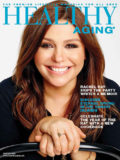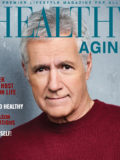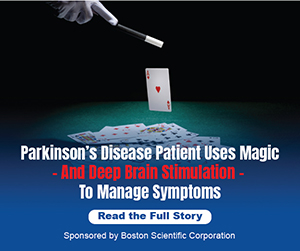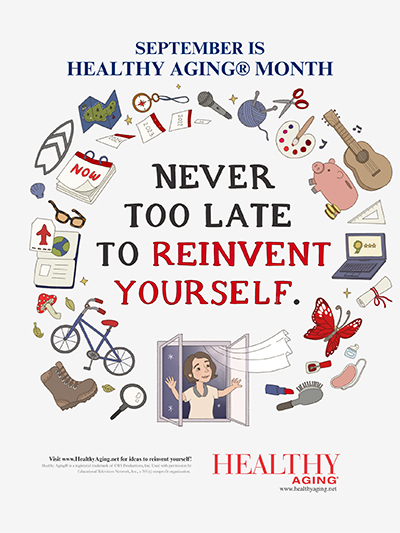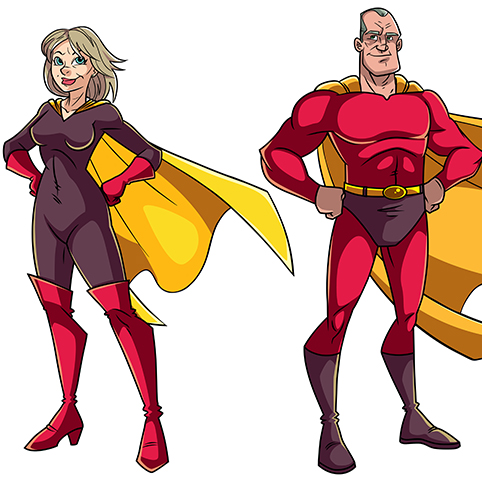
Photo: Deposit Photos
By Dr. Noelle Nelson
Patricia Baker, at 81, participates worldwide in competitive bicycling events despite being diagnosed with scoliosis.
Earl Banks, at 80, volunteers every day at the Denver Volunteers of America’s City Harvest program – after he’s already helped feed the homeless. Earl also fills food baskets and gives out toys to kids during the holidays.
Jean Dolores Schmidt (aka “Sister Jean”), a Catholic nun at 101, still serves as the chaplain for the Loyola University Chicago’s basketball team. The Ramblers Sister Jean offers both spiritual and scouting wisdom, notwithstanding using a wheelchair.
These are three of the more than 500 vibrant individuals in their 70s, 80s, 90s, and 100s that I have researched over the past five years. All of them are well into their senior decades, all enjoying life to the fullest, despite various aches, pains, and ills, all happy.
What sets them apart?
What is the secret they’ve discovered to happy, healthy longevity?
Purpose
The one characteristic these individuals share, beyond the apparent differences in their choice of pursuits, is a sense of purpose. Their lives have not led to discontent with their lot; a “woe is me, ain’t it awful to be old” take on life. On the contrary, these astonishing elders hardly give their age a second thought.
Are these individuals the fortunate few? Those somehow mysteriously spared the misery of old age?
Hardly!
The Facts
The research resoundingly demonstrates the opposite.
A meta-analysis was conducted of 10 major studies looking at the possible relationship between purpose in life, mortality, and cardiovascular events. It found that across all the studies, which involved a total of 136,265 participants, those who had a high sense of purpose in life were at a reduced risk for all-cause mortality and cardiovascular events.
In other words, a strong sense of purpose meant you were less likely to die before your predicted expiration date from all causes, including the most common; heart attacks and strokes.
A strong sense of purpose is what’s kept Evan Oswald, at 95, alive, alert, and happy. Dedicated to sports all his life, Evan is often known as “the father of Hesston College intercollegiate sport.” Evan was the college’s first basketball coach, tennis coach, golf coach, baseball coach, and first athletic director!
Evan competed in four National Senior Olympics, taking the gold even in his 90s. He accomplished all of this despite suffering from neuropathy and vertigo.
Until the pandemic shut down sports activities at the center where Evan now resides, he was the first paid activities director at the facility for the past ten years and now looks forward to resuming his role post-pandemic.
A more targeted study examined the association between life purpose and mortality in 6,985 U.S. individuals over 50 years old. Slightly over half (57.7%) of the subjects were women, and the mean age was 68.6 years.
For those of us whose math classes were a long time ago, “mean age” is the sum of all the given ages divided by the number of people. In this study, all participants had to be at least 50 to qualify. The mean age of 68.6 indicates that many of the subjects were well over 70.
The results? Once again, a more vital purpose in life was associated with decreased mortality. The researchers postulate that purposeful living may have significant health benefits and increase the likelihood of your longevity.
In a nutshell, having a purpose may not only protect you from an early demise but contribute to better health and well-being throughout your life, including in your later years.
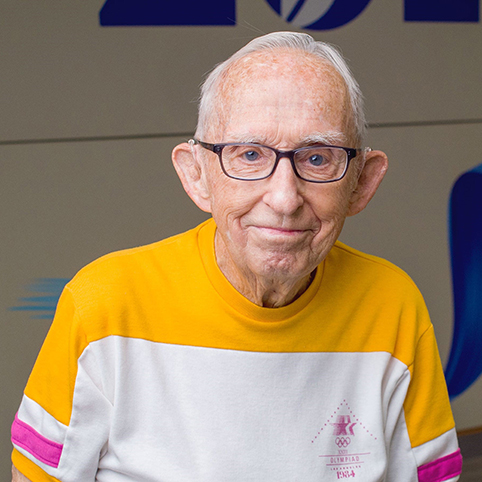
EVAN OSWALD. PHOTO: COURTESY OF THE EVAN OSWALD FAMILY
Artie Giles
Artie Giles, at 85, is a terrific example of how purpose not only increases longevity but also contributes to greater well-being. When she was in her 70s, an unusual nerve condition left her paralyzed and bedridden for a year. She was in a wheelchair for another. As she recovered, Artie became determined to get the education she’d always longed for but never had the time or means to accomplish.
This goal led to her enrollment at 81 in the Master’s program at Grace International Seminary and culminated in her Master’s Degree at 85. Artie’s well-being and happiness are a direct result of her purposeful endeavor.
Even those who have Alzheimer’s can reap tremendous benefits from a sense of purpose. Research conducted by scientists at the Rush University Medical Center in Chicago of more than 1,500 seniors over 13 years showed unequivocally that higher levels of purpose in life reduced the damaging effects of Alzheimer’s on elderly individuals’ mental abilities.
Despite the ravages of the disease, persons so afflicted had better cognitive function. The scientists concluded that purpose in life appears to protect one’s thinking capabilities, even in such challenging conditions.
Ron Roberts
Ron Roberts’ purpose, at 85, was to earn a political science degree at Wilfrid Laurier University. In and of itself, that would be quite something, but now add that Ron was diagnosed with Alzheimer’s disease at 80.
He refused just to let himself diminish and instead started learning French and Spanish. Having always been fascinated by politics, he decided on a specific goal: studying political science. Ron believes that learning is what keeps Alzheimer’s at bay.
No doubt learning helps, but science suggests it’s Ron’s dedicated pursuit of a goal, his purpose, that supports his well-being.
What is purpose?
Simply put, it’s whatever gets you up in the morning. More specifically, it’s having goals that matter to you that you enthusiastically pursue. Purpose is unique to every individual. Many may share the same purpose: running a marathon or earning a diploma, but purpose is not a group phenomenon. It’s something that each person develops for their own reasons and in their own way.
What would a sense of purpose look like for you?
Almost anything: writing a novel, achieving an educational degree or certificate, building rescue boxes for birds, learning a new language or musical instrument, growing prize tomatoes, volunteering at a local hospital or pet shelter, running or walking a marathon, the list goes on.
The activity doesn’t matter. What matters is the enthusiasm with which you pursue it and that it keeps you looking to the future, moving in that direction.
For many, that means setting a goal and then doing what it takes to reach it. Goals can be big or small; some people go for Guinness Book of World Records goals, others for improving their gym workout one exercise at a time.
I’m into competitive ballroom dancing, not because I like to compete, I don’t really. What I love is the challenge of dancing just a little better this year than I did last year. Competitions give me something tangible to reach for by a specific date. Just like preparing to run a marathon, knowing that one must be ready by a particular date gives a true sense of purpose to all those workouts.
Find something you love or something you’ve always wanted to try, and go for it! Set your goal and commit to it with all your heart. Let that be your purpose. The more you commit to it, the more your passion will grow, and with it, your happiness, health, and longevity.




